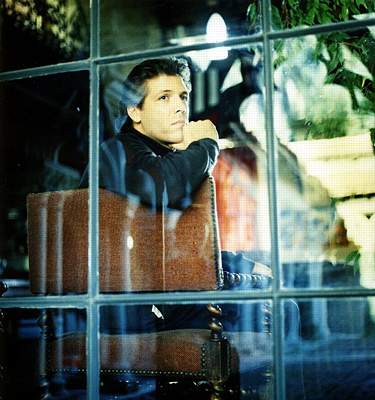|
<< -- 2 -- Tess Crebbin PROPHETIC MERIT

Forming part of the Voices of Our Time TDK Video Series, the DVD consists of a recital performance, from the Theatre de Chatelet in Paris, combined with interviews with Hampson and Rieger. They have arranged the Wunderhorn songs in three parts, Part 1 being 'Fables and Parables of Nature and Man', Part 2 'Humoresques and Ballads' and Part 3, the most impressive of them all, 'Ballads and Allegories on the Transcendence of Life'.
This arrangement is interesting because it is unique to Hampson who owns a rare edition of the Wunderhorn texts. In 1895, the singer Anna Mildenburg gave Mahler the first edition of Volumes 2 and 3, and also the 1819 edition of Volume 1 of the Des Knaben Wunderhorn poems. Mildenburg had an affair with Mahler and so it was no easy task for her to get Alma, Mahler's widow, to return the rare present after Mahler's death.
This rare edition now belongs to Thomas Hampson who is a big Mahler fan involving himself in Mahler research. It is on this edition that the DVD recital is based, featuring Hampson's own arrangement of the famous Lieder cycle.
What sets Hampson's Mahler apart from that of most other performers is, precisely, his intimate understanding of the composer, both on musical and in personal terms. This, coupled with his long-standing Wunderhorn research in general, makes for a profound DVD learning experience as Hampson talks about each song before performing it.

Thomas Hampson. Photo courtesy of Angelika Roessler, Abendzeitung München
|
There is, of course, always the initial impression that the baritone may be taking his 'acting out' of the songs a little too seriously, especially when he deeply dives into even the most banal wordings with facial expressions that range from joyous delight to anger or deepest grief. But at second glance, one cannot fail to see that Hampson does not dive into the texts per se but into Mahler's music itself until he becomes one with the composition. In this, his experience as an acclaimed opera singer comes in very helpful because he is able to fully enter into the character. The events described in the song are played out in his facial mimic, or, as in the case of Der Tamboursg'sell, a song about a drummer boy being led to the gallows and saying good-bye to the world on his final march, in his eyes that always seem to look beyond the audience at an invisible group of people playing out their tragic fates somewhere in the singer's mind. The glory of Hampson's performance lies in the extraordinary achievement that he not only becomes the drummer's boy while singing but that he is able to take his audience into the character enough to make them believe him.
Continue >>
Copyright © 3 July 2004
Tess Crebbin, Munich, Germany

|

